IT Projects are continuing to press ahead despite, and in some cases driven forward by, the ongoing pandemic. Recent launches include SharePoint Online and the start of the rollout of multi-factor authentication. IT Project staff have also been supporting the University’s pandemic response, in particular to help coordinate more than 21,000 undergraduate admissions interview sessions via Teams in December.
SharePoint Online is now available
SharePoint Online (SPO), the modern, cloud-based version of SharePoint, was launched at the end of November 2020. This means that departments, colleges and other parts of the University can now set up their presence on SharePoint Online. Once this is done, site owners can start requesting new sites. SharePoint Online sites will be provided 'out of the box', with very little customisation, and it is the responsibility of administrators and site owners to move the content of existing SharePoint on-premise sites over, before support runs out in April 2023. We encourage everyone to start reviewing their existing sites now, ahead of the move to SharePoint Online.
Although the main SPO project has now ended, we are continuing work on a Meeting solution, with three levels of functionality for Core ('lite') and Committee meetings and extended requirements for Council. We have approached third-parties to quote for these, with an aim to provide the Core and Committee Meeting solutions by April 2021.
Multi-Factor Authentication
The University is implementing multi-factor authentication (MFA), where you will be asked to verify your Oxford Single Sign-On (SSO) account using a second factor, such as a text message, an app on your phone, or a phone call. This will help protect personal and University data from cyber-attacks and is being
rolled out in batches (log in with SSO) for all SSO users, including staff and students, alphabetically by surname between January and March 2021.
Countdown to a new online expense claims system
The online SAP Concur eExpenses system will go live for Social Sciences Division in the second half of February and for the remaining departments and participating colleges during March. This means that if you are claiming expenses from an academic department, one of the colleges introducing eExpenses (Kellogg, Reuben, or St Cross), Continuing Education, the gardens, libraries or museums (GLAM), or any of the central UAS departments you will be able to submit most of these electronically via eExpenses, and they will be checked and approved online.
Data Quality and Assurance in CoreHR
This project will improve the quality of staff data held within the University’s HR Information System (CoreHR). The project will work with departments to investigate, correct and complete missing data and introduce measures to prevent future deterioration. This work will reduce the extensive manual effort required to achieve statutory reporting requirements, funding bids, and meet legislative requirements. Focus includes supporting departments in achieving Athena SWAN accreditation and addressing the University's financial recovery monitoring of recruitment restrictions.
CoreHR Time Management
A project is underway to pilot online timesheets for casual workers, as well as absence management for professional and support staff (and some researchers and academics) in four departments across the University. Delivery is now expected to be between March and May this year. The project team will soon begin planning the wider rollout of this functionality, funding for which will be sought once the pilot nears completion.
If you have questions about this project, or would like your department to be included in the next phase of implementation, please contact us at
coretime@admin.ox.ac.uk.
Education IT Programme
Projects supporting online teaching and learning, especially with the rapid switch to remote teaching during the pandemic, have all being moving forwards this year, including the very successful rollout of the Canvas VLE (Virtual Learning Environment), which is now being used by over 95 per cent of students. There has also been rapid development of the e-Assessment platform, which will allow students to take their exams remotely, in a secure, online environment.
For more details, please see our Education IT Programme article.
Digital Bodleian
After a successful beta release, the new
Digital Bodleian interface has now fully launched, and replaces the old interface. Its predecessor (Digital Bodleian 1.0) launched in 2015 with 120,000 images. It has now reached 984,000 images, with 60,000 being added during lockdown. It has a much transformed interface, new advanced searching, better object viewer, a more user-friendly home-page, and an improved downloading feature.
COWLSHUR project upgrading the centrally provided Wi-Fi service
The COWLSHUR project is upgrading the Centrally managed Oxford Wireless LAN Service (COWLS) Wi-Fi, provided by IT Services. The initial proof of concept installation is underway at the IT Services Banbury Road facility, however, in light of the significantly reduced number of users currently on-site due to the national lockdown, further options are being explored. A pilot at a multi-building site is expected to start in February. Full deployment is expected to run from April to July 2021, bringing many benefits including:
The project is supplying detailed information to the ITSS community, and customer consultations are taking place from January to March 2021, but any enquiries can be directed to the
COWLSHUR Project team.





